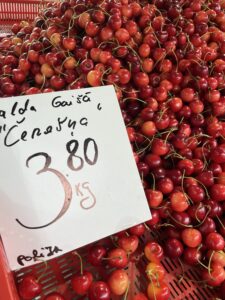
Compared to the whimsical Art Nouveau buildings making up most of Riga’s Old Town, the five arched, metallic structures lining the bank of the Daugava River seem out of place. However, a closer look inside these buildings reveals one of Riga’s hidden gems — the Riga Central Market.
Riga Central Market or “Rīgas Centrāltirgus” in Latvian, is one of the biggest markets in Europe and was even listed as a UNESCO World Heritage Site in 1988. The Central Market opened in 1930 when city planners utilized old German Zeppelin hangars to create five indoor pavilions, each designated for a specific food category.
Wandering through the booths for the first time, I couldn’t help but feel a little overwhelmed. Despite spending much of my childhood summers wandering through outdoor markets in Brazil, where my family is from, I was unprepared for the lively, bustling energy reverberating through the arched walls of Riga’s Central Market.
Almost anything can be found inside the market — from freshly pickled vegetables to imported spices, animal intestines (not my favorite section) and hand-crafted flower crowns. One can easily circumvent any language barriers by just pointing to what they want, but as a more adventurous shopper, I like to practice my Russian with local vendors.
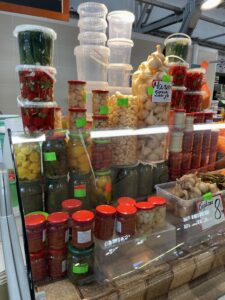
Due to political tensions with Russia, some Latvians have begun refusing to speak Russian, conversing in either Latvian or English instead. To avoid unwanted misunderstandings, it is advisable to ask strangers, “Which language are you most comfortable speaking in?” before jumping into a conversation.
However, vendors in the Central Market belong to an older generation and are generally more willing to speak Russian. This makes the Central Market a must-see for Russian language learners like myself, who are itching to put their new vocabulary to use.
Still, buying food in a language I only began studying recently comes with its awkward moments. For example, I once forgot the word for beef and accidentally asked for dumplings or “pelmeni with cow” instead. Another time, a vendor unexpectedly corrected my grammar when I was trying to order a few homemade pickles.
Speaking Russian with locals is tougher than with my teachers, who correct my pronunciation and understand me despite my grammar mistakes. In the Central Market, nobody knows I am a student who sometimes forgets her case endings and will pantomime words she doesn’t know. I am treated just like any other Russian speaker.
Interactions like the ones I mentioned above may seem discouraging, and honestly, I have been frustrated that I can’t seem to ace what appear to be basic transactions. However, I quickly learned that laughter is the best remedy for these frustrations, and, at the end of the day, I do succeed in buying the products I want.
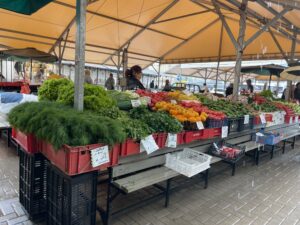
Speaking Russian in the Central Market comes with unexpected perks, too. In addition to produce, one can find handicrafts, clothes, jewelry, shoes, candles and other household items in between each food pavilion.
During the summer, vendors inflate the price of their goods to profit from tourists; speaking English loudly is an easy way to ensure that your purchases will be a few euros more than their actual value.
I once saw the price of a hat suddenly drop by 20 euros because the English-speaking buyer switched to Russian halfway through his purchase. Furthermore, I have found that many Russian-speaking locals are sympathetic to language learners, complimenting their speaking abilities and encouraging them to continue studying. Sometimes a “you speak so well.” from a stranger is the perfect confidence boost after a tough day of making grammar mistakes in class.
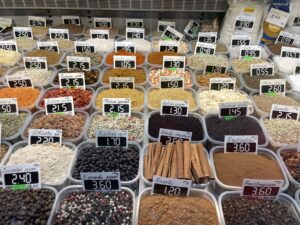
Riga’s market culture is unlike anything I have experienced in the United States — I can’t exactly haggle for a bag of cherries with a cashier at H-E-B.
Additionally, with the market sporting over 3,000 stands, visiting every booth and trying every product is practically impossible. Even though I have sampled “Jāņu siers,” a traditional Latvian cheese; photographed vibrant vegetables; held my breath as I sped through the stinky fish section; and practiced speaking Russian dozens of times, I have only experienced the tip of the Riga Central Market iceberg.
Nevertheless, my visits to the market have taught me invaluable lessons on humility, vulnerability and learning to laugh at my mistakes. Perhaps my best deal at the Riga Central Market was not the kilo of fresh strawberries purchased from a friendly grandmother or the Uzbek pastry I scarfed down after a long day of school, but rather the sense of pride and achievement in my growth over these past two years, when I first began my language-learning journey.
This post was contributed by Marina Garfield, a Global Ambassador for Summer 2024. Marina is a junior plan II Russian, East European and Eurasian studies major studying abroad in Riga, Latvia.


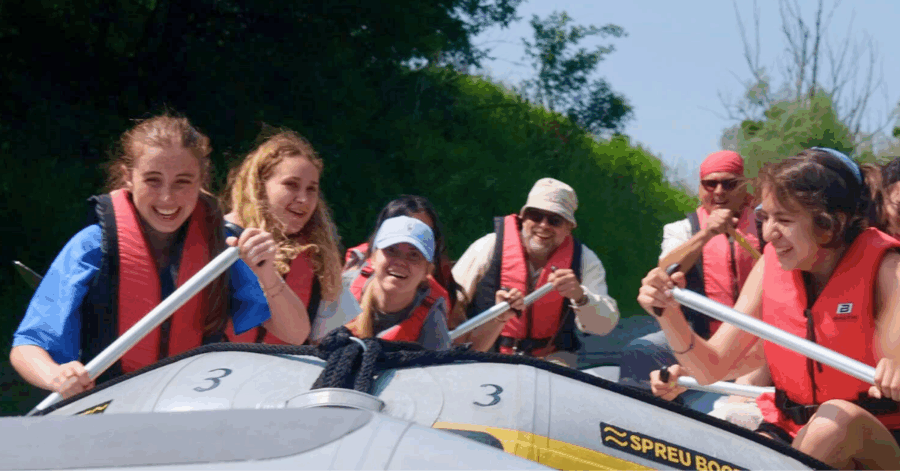
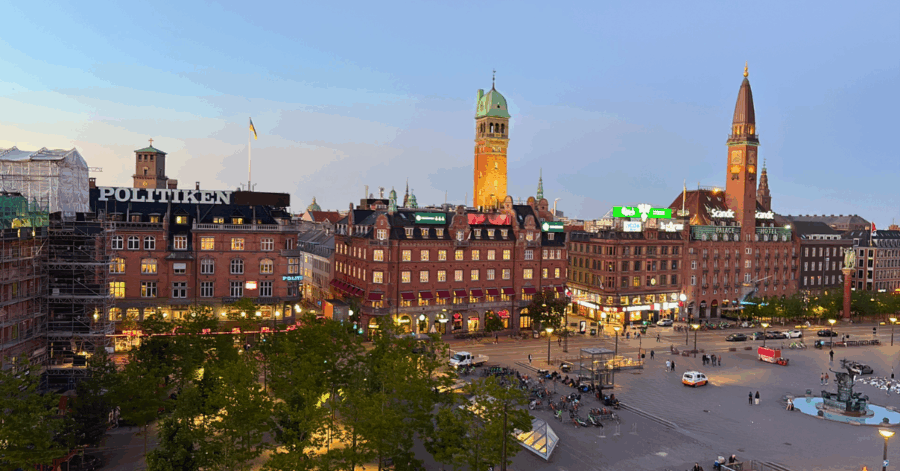
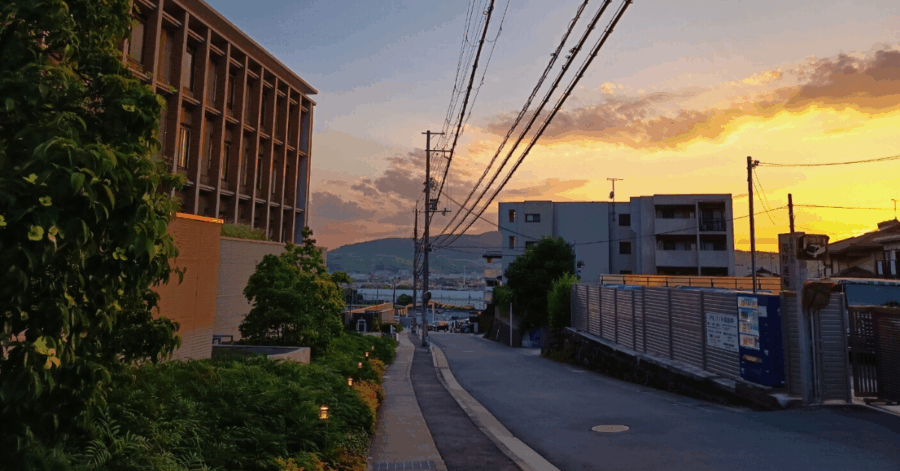
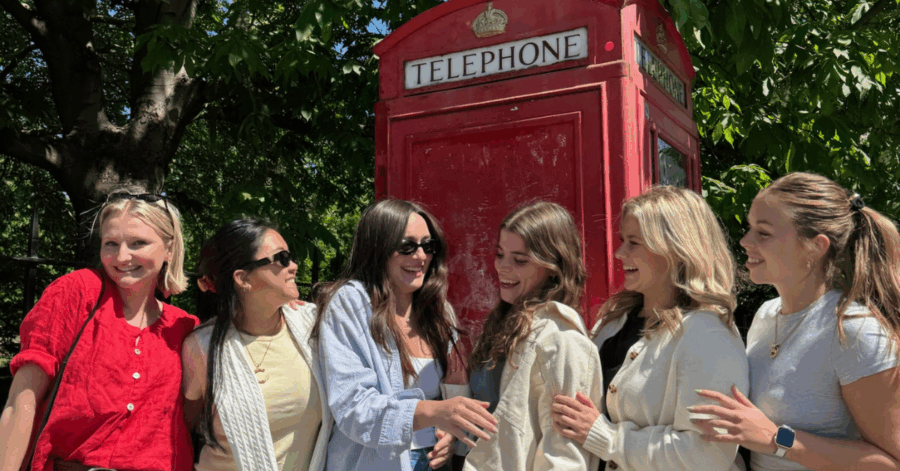
Marina makes us go around the market with vivid colours and good humor
Making us feeling how much would be good reading about others experiences she had in those not so much known east eurasian world